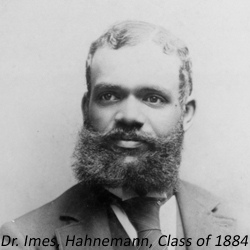Celebrating Our Heritage During Black History Month

February 24, 2017
February is Black History Month
This year, we welcome Black History Month during a time of divisiveness and for most of us confusion, driven by the shift in political power and differences in societal views. Nonetheless, we cannot ignore the long line of historical events that continue to shape us all today: the resilience and determination of our ancestors and the diversity and richness of our culture. Not only who we are, but where we came from. In the midst of our uncertainty, let's take a moment to reflect on the legends of our time and the great pioneers of the past.
Many would agree that one of the greatest African American legends of our time would be our esteemed former and first African American President of the United States, Barack Obama. Serena Williams, often called the greatest tennis player of all time. Entertainer and musical artist, Beyoncé, known for her massively successful career, winner of 21 Grammy Awards. African American writer and journalist, winner of the 2015 National Book Award for Nonfiction, Ta-Nehisi Coates, the James Baldwin of our generation. The number of legendary figures is abundant: Martin Luther King Jr., Coretta Scott King, Muhammad Ali, Malcolm X, Rep. John Lewis, Marcus Garvey, the list continues.
What about the legends of our past, the pioneers before our time? Some firsts:
Dorothy Dandridge, first African American woman to be nominated for an Academy Award, during the 1950s, a time of great segregation.
Jesse Owens, a four-time Olympic gold medalist at the 1936 Berlin Olympics; today the Jesse Owens Award is regarded as USA Track and Field's highest honor.
Adventurists, such as Bessie Coleman, the first African American woman to earn an international pilot's license, in 1921. She was recognized for her daring stunts in air shows performed around the world, while refusing to be slowed down by racism.
Mae Jemison, an American physician and NASA astronaut known for being the first black woman to travel in space.
First African American surgeon general, Joycelyn Elders, MD.

Vivian Pinn, first African American woman chair of an academic pathology department, at Howard University College of Medicine, and the first full-time director of the Office of Research on Women's Health at the National Institutes of Health.
Novelist, essayist and playwright James Baldwin. A Harlem native who remains the best of his time, capturing with truth and unique articulation the social injustice and inequality that remains tangible today, more than a decade preceding the Civil Rights Act, publishing "Go Tell It on the Mountain" in 1953.
The civil rights activists who refused to accept the cruel act of inhumanity, slavery and injustice: Dred Scott (1795-1858); Nat Turner (1800-1831); Harriet Tubman (1822-1913); Frederick Douglass (1818-1895).
The history of our African American pioneers encompasses great intellects of the 19th and early 20th centuries, such as Booker T. Washington, founder of Tuskegee Institute, and Dr. W.E.B. Du Bois, influential historian, writer and scholar, the first African American to earn a PhD from Harvard, in 1909.
In medicine, we have Drs. James McCune Smith, the first African American to earn a medical degree, and Rebecca Lee Crumpler, the first African American woman physician. And what about our own pioneers in medicine, graduates of our legacy school Woman's Medical College of Pennsylvania: Drs. Rebecca J. Cole (1846 - 1922), the second African American woman to receive an MD; Matilda Arabella Evans (1872 - 1935), the first African American woman licensed to practice in South Carolina; and Virginia M. Alexander (1900 - 1949), who founded a community health clinic in her home.
Always keep in mind: We cannot fully understand who we are, and in its entirety where we are going, unless we understand the richness of our history.
Written by:
Lidyvez Sawyer, MPH
Back to Top